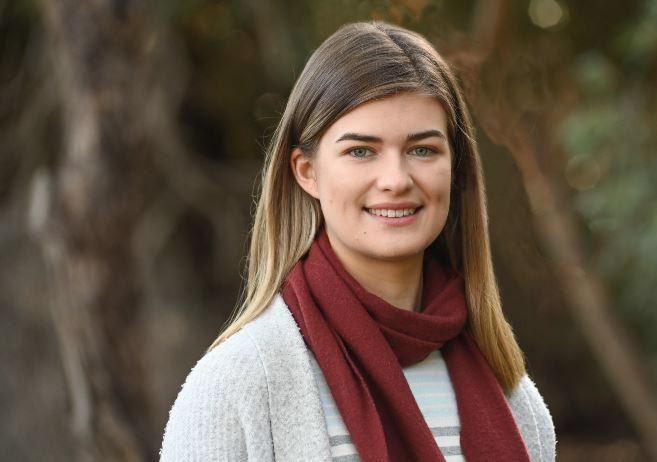Restaurants and cafes – with help from the public, government and suppliers – could do more to adopt sustainable food waste disposal practices and divert waste from landfill, a Flinders University study says.
 Ellen Fogarty, Environmental Health Researcher, Flinders University. Image Credit: Flinders University
Ellen Fogarty, Environmental Health Researcher, Flinders University. Image Credit: Flinders University
The South Australian research studied the motivations, difficulties and barriers facing food service businesses and their approach to voluntary food waste recycling in a bid to develop better recycling solutions.
The study of 22 small food outlets in the Mitcham Council areas found 54% had practices in place to recycle their food waste while 46% do not. Insufficient kitchen space, additional labour costs and difficulty in separating food waste from non-compostable rubbish and hygiene and food safety issues were cited as reasons for not recycling food waste.
While most restaurant and café owners were keen to reduce their waste to landfill, the provision of a free green organics bin was the single most important factor that would encourage them to recycle food waste was.
In Australia, about 7.3 million tonnes of food worth $20 billion is wasted each year. Globally, the mountains of perishable foods left uneaten or used equates to a more than 1.3 billion tonnes of food waste, with an estimated one-third of all food produced ending up as waste.
Recycling food scraps increases resource recovery, reduces waste to landfill and so helps cut greenhouse gas emissions.
“Where food waste cannot be prevented, we need to improve recycling and disposal, including in the food service sector which generates a large portion of our food waste,” says Flinders University environmental health researcher Ellen Fogarty.
The City of Mitcham provides businesses with an option to purchase 240 litre green organics bins, which it then collects and empties fortnightly, which was an option for businesses generating a lot of food waste per week. The council is undertaking a free Kitchen Caddy green organics trial with funding from a Green Industries SA Food Waste Incentive grant.
Mitcham Council Mayor Dr Heather Holmes-Ross says the research will help direct future council policy.
“This results of this project, along with a number of research projects being undertaken by Flinders University research students, can be used to help the City of Mitcham make evidence-based decisions to make our City become more sustainable.“
The article, ‘Investigating food waste recycling in local food service businesses: A case study from a local government area in Australia’ (January 2022) by Ellen Fogarty, Beverley Clarke and Kirstin E Ross has been published in Sustainability DOI: 10.3390/su132413846